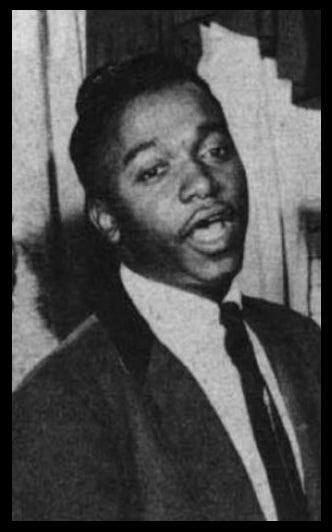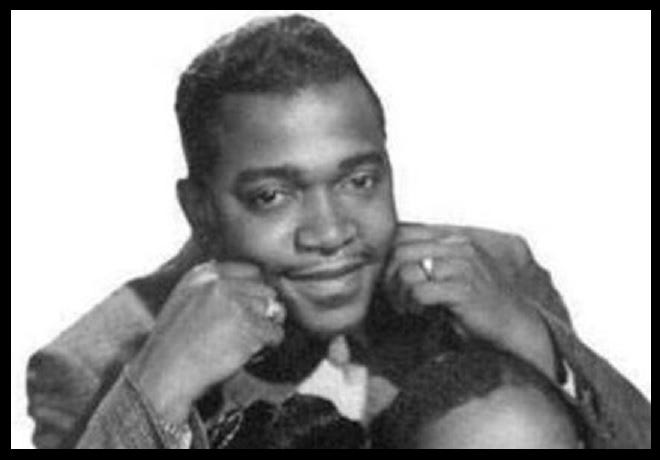James "Shep" Sheppard (September 24, 1935 – January 24, 1970) – I'm All Alone (1964)
A sad, haunting song written by the troubled creator of R&B's first song cycle, released six years before his tragic death.



Watch full video on Substack or Twitter.
James Sheppard was the lead singer/songwriter of two doo-wop groups in the 1950s and 60s, the Heartbeats and Shep and the Limelites, and is credited with writing the first song cycle in R&B and rock'n'roll history.
Born in Queens, New York, James “Shep” Sheppard was a student at the Food & Maritime Trades Vocational School when he became the lead singer of the Hearts, a doo-wop vocal quartet of students from nearby Wilson and Jackson high schools. They soon changed their name to the Heartbeats, after learning of an all-girl group named the Hearts.
William Miller, one of the quartet member's neighbors, worked for Herald Records, a small New York label. Miller and his co-worker, bookkeeper Blanche “Bea” Kaslan, started their own label, Hull Records, and signed the Heartbeats. Their first single “Crazy For You” was a regional hit, written by Sheppard and Miller. After that, everyone quit their day jobs and began touring full time.
When a girl Sheppard was in love with moved away to Texas, he wrote “A Thousand Miles Away” (1956). It was a #5 hit on the national R&B charts, and kicked off a cycle of six linked songs he wrote over the next six years, the first known song cycle of the rock'n'roll era. The next entry in the storyline was “500 Miles to Go” (1957), released on Gee Records, a division of Roulette. His songwriting talent was all the more remarkable because he could not read or write music.
But the more successful they became, the more Sheppard turned to alcohol. "Shep was a beautiful person, he just drank too much,” said bass singer Wally Roker in an interview with the UK website Nostalgia Central.
“We disbanded the group based on Shep drinking too much. We had problems with agents, promoters, record companies, everybody because of this.”
After the Heartbeats broke up in 1959, Sheppard opened a restaurant in Jamaica, Queens. Within a year, he put another group together. Along with his two friends Clarence Bassett and Charles Baskerville, who also had been in other doo-wop groups, he formed Shep and the Limelites in 1960.
Sheppard re-signed with Hull Records, who entered into a deal with ABC-Paramount to restart the label. The first two Shep and the Limelites singles came out on their Apt subsidiary in 1960-61. Then Sheppard picked up his song cycle again with “Daddy's Home,” recorded on February 1, 1961 and released that March. It was an immediate hit, going to #2 on Billboard's pop charts by May. “Daddy's Home” was denied the top spot by “Travelin' Man” by Ricky Nelson, a song originally written for Sam Cooke but rejected by his manager.
Shep and the Limelites followed up “Daddy's Home” with the additional song cycle chapters “Three Steps from the Altar” (1961), “Our Anniversary” (1962), and “What Did Daddy Do?” (1962). Over the next few years, they also released nine other singles and one full length album, Our Anniversary (1962). Nothing matched the sales of “Daddy's Home.”
And legal troubles took even that record's success away from Sheppard. Because the lyrics of “Daddy's Home” were a continuation of the story that started with “A Thousand Miles Away,” a lawsuit was filed against Keel Music, the publishing arm of Hull Records. The plaintiff was Nom Music, Roulette Records’ publishing company, who had acquired the copyright to the earlier song.
The two songs were nothing alike except for their linked storylines. Nonetheless, in April 1964 a New York federal court awarded all royalties from “Daddy's Home” to Nom Music, and issued an injunction against future use of the song. As a result of this decision, Hull Records folded in 1966 and Shep and the Limelites broke up.
This all led Sheppard to drink even more heavily, and he started missing recording sessions and personal appearances. But he kept writing great songs before the band's demise, one of which was recorded in mid-1964, after the court's decision was announced. “I'm All Alone” was a sad, haunting ballad about loneliness and lost love. It was released that September, with “Why Did You Fall for Me” on the B-side, and failed to chart, although it was arguably the most heartfelt song they ever recorded.
On January 24, 1970, James Sheppard was found murdered in his car on the Long Island Expressway following an apparent robbery. Considering the well-documented mob ties of Roulette Records, the company that owned the rights to his two biggest songs and had successfully sued Sheppard for his royalties, motives beyond a random crime cannot be ruled out. He had re-formed Shep and the Limelites prior to his death for a series of revival gigs and appearances. If he was back to singing his hits, he was directly challenging the label, something few ever did without consequences.
It was a tragic end to a talented but troubled artist.
#doowop #soul #ShepAndTheLimelites #JamesSheppard







Learned some stuff with this one. Thank you.